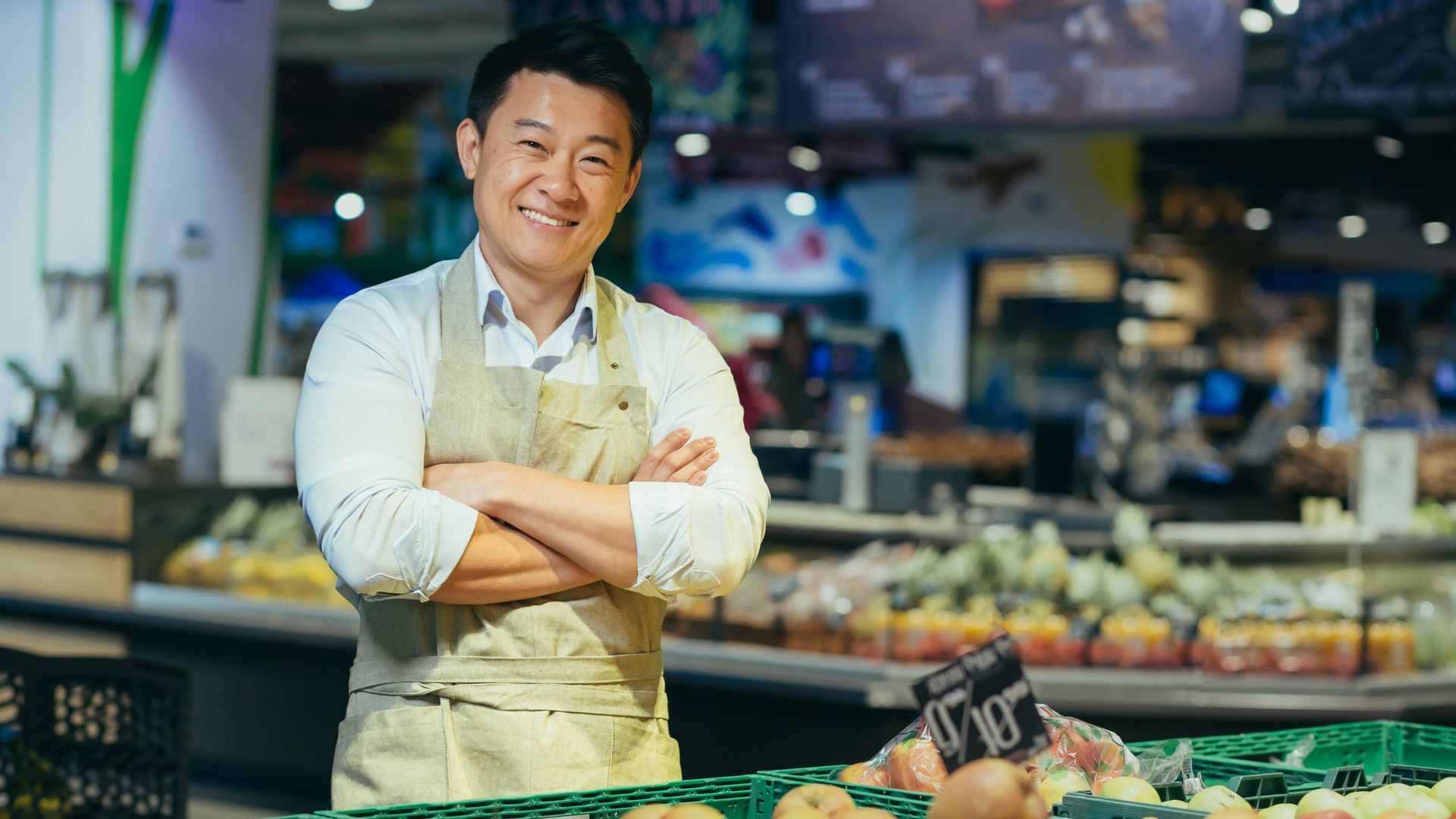13 December 2022
Expansion of GLOBALG.A.P.’s farm-level social management tool GRASP in Asia
Following the successful implementation of the GLOBALG.A.P. GRASP in numerous countries across Asia, the first GRASP assessment has taken place in Japan.
Following the successful implementation of the GLOBALG.A.P. Risk Assessment on Social Practice (GRASP) in numerous countries across Asia – including Thailand, Vietnam, China, Taiwan (Province of China), South Korea, Malaysia, Indonesia, and the Philippines – the first GRASP assessment has taken place in Japan.
To support its implementation, GLOBALG.A.P. published the new National Interpretation Guideline (NIG) for Japan in September 2022. Developed in collaboration with the country’s national technical working group, as well as Japanese experts on domestic labor law, the NIG ensures that the cost-effective and flexible assessment tool is fit for purpose in the Japanese market.
The first GRASP assessment of a producer – fruit and vegetables producer Miyoi Co., Ltd. (GGN 4063061844804) – marks another important milestone for social responsibility in the Asian agricultural sector.
Answering the demand for a solution for responsible social practices
Five years on from the introduction of the Integrated Farm Assurance (IFA) standard in Japan, GRASP is now available for producers of all types and sizes – including smallholders and family farms – with IFA certified production processes. The solution addresses the increasing demand from Asian retailers, brand owners, and consumers for responsible social practices at producer level. Over the last 18 years, the comprehensive tool has been widely adopted and is now tried, tested, and trusted in almost 100 countries globally.
The relevance of the topic has been highlighted by stakeholders such as AEON and McDonalds, who have both committed to integrating GRASP in their respective procurement policies for domestically grown and imported products.
Yuji Arai, Supplier Code of Conduct, General Secretariat at AEON, stated: “To ensure that the produce we source is farmed in a responsible manner, we have established food safety and sustainability procurement policies, and have continued to source produce in accordance with the policies in cooperation with our producers and suppliers. We intend to use more reliable third-party verification in the future, and now that GRASP assessments are available in Japan, we are confident that we can take this intention forward with even greater vigor. We also hope that GRASP will help to create an environment in which agricultural products imported from outside Japan can be procured with confidence, with a low risk of human rights issues.”
Ryo Moriya, Food Safety and Quality Systems in the Supply Chain Management Division of McDonalds Company (Japan) Ltd., commented: “We started McDonald's GAP initiatives with lettuce in 2010 under the policy "We put food safety before everything else". We have also been promoting occupational health and safety and sustainable sourcing in addition to food safety since 2019 through the GLOBALG.A.P. PLUS add-on. Following the publication of the national interpretation guidelines (NIG) for GRASP in 2022, we will further promote the protection of producers' human rights and the establishment of a sustainable supply chain.”
Safeguarding workers’ health, safety, and welfare
GRASP is a farm-level social management tool for global supply chains. Applicable to a corresponding scope of the IFA standard, an increasing number of producers in Asia will have the opportunity to join the more than 110,000 GRASP-assessed farms – representing over 50% of GLOBALG.A.P. certified production processes – around the world.
Developed through extensive consultation with stakeholders throughout the industry, GRASP addresses four major pillars of social responsibility: workers’ voice, human and labor rights information, human and labor rights indicators, and child and young workers protection. It covers the main topics of the UN Guiding Principles on Business and Human Rights, as well as the International Labour Organization (ILO)’s core labor conventions.
The GRASP add-on therefore allows producers to assess, improve, and demonstrate their responsible social practices, and increases export opportunities to new markets both in Asia and beyond through a globally recognized solution. The assessment also takes place in combination with the IFA audit, reducing both time and costs for producers.
GLOBALG.A.P. Managing Director Kristian Moeller commented: “We are committed to working with our long-term Community Members, such as AEON and McDonalds, to facilitate and strengthen responsible sourcing policies both in Japan and across the wider region. We are confident that our smart farm assurance solutions will support the Asian farming sector and that the GGN label will provide the level of verified transparency that consumers are seeking.”
Increased adoption of the consumer-facing GGN label
The GGN label, which stands for certified, responsible farming and transparency, is a cross-category consumer label for agriculture, floriculture, and aquaculture. A fully compliant GRASP assessment is a central requirement for use of the GGN label, alongside IFA certification at farm level and GLOBALG.A.P. Chain of Custody (CoC) certification across the entire supply chain. All the necessary certification is verified in real time through the GLOBALG.A.P. IT systems before a GGN label license is granted.
Offering a unique level of traceability, the rigorous requirements of the GGN label safeguard the segregation, traceability, and integrity of products originating from certified production processes across the supply chain up to the point of sale. This ensures that the authenticity of products can be verified – mitigating the risk of accidental or intentional food fraud – and builds consumer trust in brands. Japanese retailer AEON is set to become the first in the country to feature the GGN label on products across their TOPVALU range from April 2023.
The GGN label has already been adopted in Thailand and China, and enables producers and retailers to make responsible farming visible on store shelves. Products bearing the GGN label can now be found in 40 countries on 5 continents, assuring consumers by communicating commitment to the key topics of food safety, environmental sustainability, workers’ wellbeing, animal welfare, and traceability.
Growing number of approved certification bodies
All the GRASP normative documents, including the new GRASP NIG for Japan, are available from the GLOBALG.A.P. document center in both Japanese and English. There are also multiple certification bodies that are now able to conduct GRASP assessments, including:
JQA
TUV SUD Japan
SGS (application in progress)
Takahiro Hayashi, Senior Manager of the GAP Certification Department at the Japan Quality Assurance Organization (JQA), noted: “Following the publication of the NIG for Japan, and after deepening our understanding of the requirements of the standard and national legislation, we conducted the first GRASP assessment in the country – resulting in “full compliance.” JQA will continue its efforts to promote GRASP assessments in Japan.”
For more information on the assessment, how it works, and how you can get started, see the GRASP area of the GLOBALG.A.P. website.
GLOBALG.A.P. is a brand of smart farm assurance solutions developed by FoodPLUS GmbH in Cologne, Germany, with cooperation from producers, retailers, and other stakeholders from across the food industry. These solutions include a range of standards for safe, socially and environmentally responsible farming practices. The most widely used GLOBALG.A.P. standard is IFA, applicable to fruit and vegetables, aquaculture, floriculture, livestock, and more. This standard also forms the basis for the GGN label: the consumer label for certified, responsible farming and transparency.
The GLOBALG.A.P. brand began its journey as EUREPGAP in 1997. 25 years later, over 200,000 producers are under GLOBALG.A.P. certification in 132 countries. Nearly 150 team members around the world are dedicated to the mission of spreading responsible farming practices to ensure safe food for future generations.
The GGN label is a consumer label that stands for certified, responsible farming and transparency. Found in stores on both packed and loose fruit and vegetables, farmed seafood, flowers, and plants, the label offers shoppers a quick, consistent way to recognize products that align with their values on the topics of animal welfare and social and environmental responsibility.
Accompanying the logo on product packaging is a unique 13-digit identification number that can be entered into the GGN label portal to trace the origins of the product. All products with the GGN label come from farms with production processes that are independently audited and certified to the strict criteria of GLOBALG.A.P. standards or benchmarked equivalents.
The GGN label is owned by FoodPLUS GmbH in Cologne, Germany. To find out more, visit www.ggn.org.
Latest news and events
25 June 2024
Wikifarmer becomes a GLOBALG.A.P. Community Member
25 June 2024
New discussion platform for national technical working groups
Aug 15, 2024
IFA supports people: Fostering ethical labor practices for a sustainable future
Aug 26, 2024 - Aug 30, 2024
Academy training: IFA v6 for fruit and vegetables in French
Aug 27, 2024 - Aug 28, 2024
Academy training: SPRING v2 in English
Sep 02, 2024 - Sep 06, 2024
Academy training: IFA v6 for fruit and vegetables in English
Sep 10, 2024 - Sep 12, 2024
GLOBALG.A.P. SUMMIT 2024


